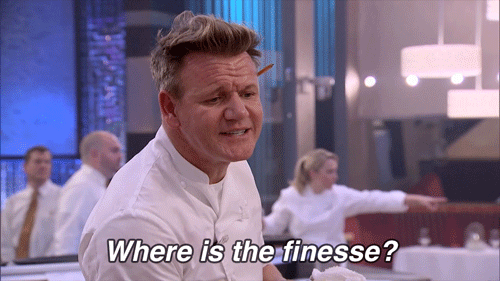Hello, lovely ladies and classy gents!
Earlier this week, I presented two options as to which excerpt from my novel-in-the-works you would be interested in taking a gander at. The competition was close, as it was last time, but the majority of you fine individuals selected Choice #1, pulled from a chapter titled, “Campfires at Midnight.” Thanks to all who voted! The excerpt’s summary is as follows:
Clarence and Kairi settle down by firelight to unwind after a long day’s travel. But the night is prolonged when Kairi pulls out a bottle of uju…
I sincerely hope you enjoy it. Any thoughts on the passage would be greatly appreciated.
Without further ado, here it is!
(Word count: 1190)
____
The flame ignited with a spectral moan.
Kairi’s pretty face appeared in the darkness and she lifted her eyes to look at Clarence. Her features glowed in the yellow firelight, blue eyes sultry as ever despite the faint circles that underlined them. The chill in the air was already melting away. The sight, the warmth, even the sound of the quiet crackling fire was a comfort to Clarence. And yet, he couldn’t help but pay mind to the tightness blooming in his chest like a thorny rose. He could be around fire with a sane mind; of that he was sure. He had spent countless nights beside campfires and countless days beside inn hearths since the accident without incident. Even still, the episode he suffered two nights ago instilled upon him new fear. A vision stroke, Bechamel had called it. Clarence hadn’t a reason to suspect that sitting beside a calm fire would trigger an inadvertent attack, but a caution lingered.
Kairi must have noticed, because she gasped a feminine gasp. Women had a habit of reading faces. “I forgot! Let me put it out.”
“I’m alright, I promise,” Clarence insisted with a raised hand. The heat felt nice pulsing against his skin.
Kairi tightened her brows at him. “Are you certain?” she asked, voice steady. “I do have the means of keeping you warm if we put it out.”
Clarence couldn’t help a wolfish grin from sprouting across his face. He raised a considering finger to his lips. “Do you?”
Kairi nodded, her rich blonde hair reflecting glints of gold radiating from the fire. Her grin was just as mischievous as his. Maybe moreso. The girl broke her crouch and settled her knees on the cavern floor so she could reach her bag which lay a couple of paces away. She grasped the sack and pulled it towards her, a feat that would have proven significantly more difficult had the bag been filled to its capacity as it was when the trio had departed two nights ago. Food went quicker than the wind, it seemed, but Kairi assured Clarence that there was plenty left. He had yet to lay eyes on the contents of the sack himself, of course. He didn’t believe that touching a woman’s bag was proper, really. That was just one of those rules about being a man.
The Gish stuck her hand into the leather bag and removed it after a short bout of clattering. Emerging in Kairi’s grasp was a green bottle large enough to sate a table’s thirst at dinner. Even through the green glass and the glare splayed upon the bottle by the steady fire, Clarence could determine with certainty that the liquid inside wasn’t soka. Soka sparkled like fireworks, and a proper Gish wouldn’t lift a bottle of soka for casual consumption. Not even a fiery spirit like Kairi. “What is it?” Clarence asked.
Kairi traced her finger around the bottle’s corked tip and, through a simmering smile, said, “Uju. Alcohol always makes me feel warm when I drink it.”
Clarence tsked. He pulled a knee to his chest, allowing his other leg to rest extended across the rocky ground. He smiled into Kairi’s face.
“Alcohol doesn’t do anything for me,” Clarence confessed.
“You mean you do not like it?” Kairi asked. The flesh around her eyes contracted ever so slightly. She still wore that melting smile, though. Was she challenging him?
“No,” Clarence replied. “I like it. I like Scotch, sometimes. I just…don’t believe in it.”
Kairi cocked her head sideways. Clarence cocked his head in turn. When had she moved so close to him? The warmth emanating from her skin was hotter than the heat fanning from the crackling fire. “You do not believe it is moral to drink alcohol?” she asked, digging into his eyes with her own.
Clarence hesitated. How could he explain this? Best to come right out and say it. It was midnight, after all. The moon softened hearts. Perhaps Kairi would be open to what he had to say. Fighting to keep his voice stoic, Clarence pronounced, “I don’t believe a man can get drunk the way everyone thinks.” Kairi only stared, her blue eyes locked onto his. Her smile filled her face to her forehead. “You are teasing me,” she determined.
“No!” Clarence resolved. “Think about it. How does a man seem when he drinks?”
“Stupid,” Kairi responded without pausing to find the thought.
“Exactly, he seems stupid. If you give a man an excuse to act stupid, he’ll seize the opportunity. That’s all alcohol is: an excuse. Does it touch the mind in a physical way? I don’t think so.”
Kairi studied him, searching his face for a tell. “You do not believe that.”
Clarence shook his head, expression stony. “I believe it.”
“Then you have never kissed a bottle.”
“I have,” Clarence assured her. “To no effect.”
“Are you drunk?” Kairi asked, black brows drawn down in a tight furrow. “This is how men talk when they are drunk. They speak boldly of things they know nothing about.”
He would show her bold. The green-eyed man released the knee he held to his chest and shifted himself so he was on his hands and knees, a wolf prowling. He leapt atop of Kairi, turning her from her side to her back. She laughed as he slipped his hands into hers. He held her pinned as she had held him, once. Looking down on the girl was a sight. The Gish’s golden hair lay splayed on the cave floor like a wave around her head. Her chest stirred up and down with her breath. Her blue eyes were fixed on his greens. Her smile touched her ears. Clarence leaned in so his nose was a touch away from hers and said, “Men speaking boldly of things they know nothing about? Kairi, you just described a sober man. You see? Alcohol doesn’t change a thing in your head.”
Kairi shrugged her mouth, good spirits pouring through the expression. “I have seen women drink themselves to where their minds tell them to climb atop men they have seldom spoken to. Is that not the work of alcohol?”
The girl’s breath smelled sweet. Like honey. Clarence cocked his head and scanned Kairi’s eyes without any apprehension about his exploration. Her smile told that she was open to being explored, and she seemed to be taking a good look at his eyes as well. Perhaps in a manner more brazen than bold, Clarence dared to say, “If I’m not mistaken, I think I remember a particular girl climbing on top of me with a perfectly sober mind.”
Kairi dropped her jaw. “I was subduing you, Clarence Cash! And it was you who played words with me. I did not make advances.”
Clarence allowed his green eyes to fill with gloating. He had the girl on the defensive, now.
Copyright 2017 J.J. Azar
Thank you for reading!
As always, stay classy.
~J.J. Azar










 Robert Jordan! He’s the guy behind the Wheel of Time series. His story is a fascinating one. He published the first book of the Wheel of Time series in 1990. In 2005, he published Book 11. The same year, he was diagnosed with cardiac amyloidosis, a rare blood disease. Tragically, in 2007, Jordan passed away. He left behind an incomplete, epic fantasy series beloved by millions of fans across the world. Brandon Sanderson eventually went on to complete books 12-14, finishing the series using extensive notes left by Jordan. There’s a whole lot more to his story, so I implore you to read up on who this man was and how he worked and wrote. He is a grand inspiration of mine who has had a substantial impact on my life.
Robert Jordan! He’s the guy behind the Wheel of Time series. His story is a fascinating one. He published the first book of the Wheel of Time series in 1990. In 2005, he published Book 11. The same year, he was diagnosed with cardiac amyloidosis, a rare blood disease. Tragically, in 2007, Jordan passed away. He left behind an incomplete, epic fantasy series beloved by millions of fans across the world. Brandon Sanderson eventually went on to complete books 12-14, finishing the series using extensive notes left by Jordan. There’s a whole lot more to his story, so I implore you to read up on who this man was and how he worked and wrote. He is a grand inspiration of mine who has had a substantial impact on my life. The Eye of the World, Book #1 of the Wheel of Time series. When this book was handed to me years ago, I hadn’t a clue what I was about to begin. I’m currently on Book 9 of the series and I’m still infatuated with it. Since starting the series, I’ve recommended it to many others and a handful have fallen for it as I have.
The Eye of the World, Book #1 of the Wheel of Time series. When this book was handed to me years ago, I hadn’t a clue what I was about to begin. I’m currently on Book 9 of the series and I’m still infatuated with it. Since starting the series, I’ve recommended it to many others and a handful have fallen for it as I have.









